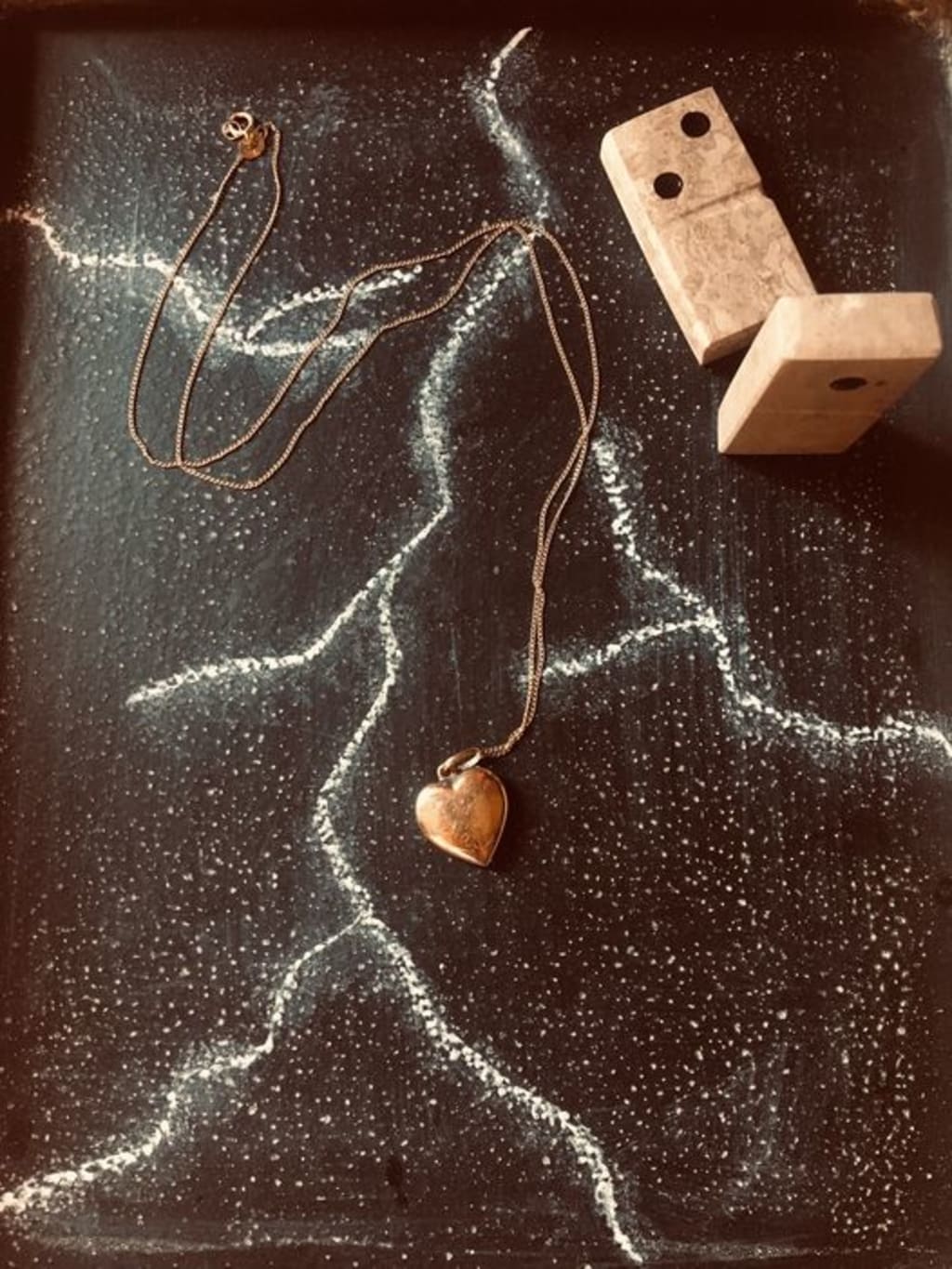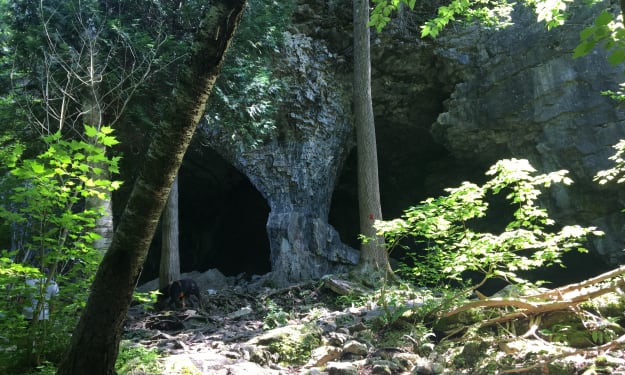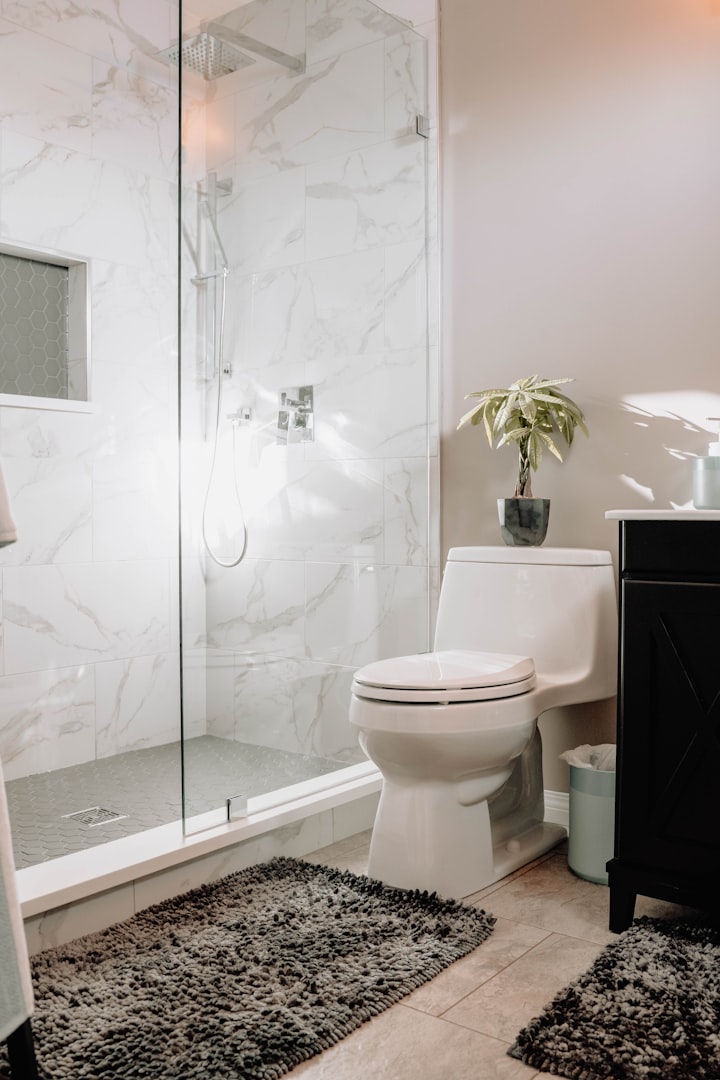The Pact
By Wendy Macario

I awaken before the ring of the first alarm. Somehow, I always know when it will go off and rouse just moments before. I hate that sound. 6 a.m. ”Rise and shine”, my mother used to say. I swing my legs over the edge of the bed.
“Up and at ‘em!” I mumble to myself, another of my mother’s favourites. As I stand, the cement floor sends waves of icy chills through my body. Me and the others pull on our coveralls in almost perfect unison. This is a barracks of sorts, hundreds of cots laid out in tidy rows. Looking around in the pre-dawn light, it is easy to imagine the world as it had been before. So much has changed since then. I’ve changed. I prefer the night now. I wear the darkness like a cloak, and find it comforting. I reach under my pillow and carefully slide the object into my pocket so that no one sees. If they see it, they’ll take it.
The alarm sounds again, a blaring siren that reverberates off of the walls and rattles my brain. It seems to be getting louder, more noxious, my hearing more acute. I fall into line, and begin to march behind the others. Once out of the Sleep Room, we continue down a long hallway filled with blinding fluorescent light to the Lab. One by one, The Techs examine us from head to toe. We are The Subjects. The phlebotomy follows—the same four coloured tubes of blood are drawn each day: green, red, blue, and lavender, always in that order. Everything is like clockwork here. The monotony is a welcome change from the uncertainty that has plagued the world for the past three and a half years.
Breakfast is always the same. The first meal of the day is a large, colorless cube that reminds me of Jell-O but has the taste of salted crackers. The Techs say it is the perfect blend of vitamins, minerals and protein. We drink purified water. It is vital that The Subjects are in perfect health. The next four hours of each day are filled with rigorous exercise. This is the part that I like best. It reminds me that I am still alive. After my father was gone, my mother and I had packed up our belongings and moved to a small town on the west coast. We bought a little place on the beach, far away from the madness, or so we’d thought. At sunrise every morning, my mom and I would jog along the beach. Mom would remind me: “We have to stay strong to survive”. About that, she had been right.
Today is a good day, I feel stronger as I run on the treadmill. The more my muscles ache, the more the sweat seeps from my pores, the more I feel cleansed, like a ritual baptism to wash away any impurities. While I’m running, I envision myself as a horse galloping in the open countryside and dream of a brighter future ahead. On other occasions, I imagine myself as a panther, the powerful sinews of my thighs flexing and thrusting me forward--the blood of a jungle cat coursing through my veins. More and more, recently, I find myself contemplating the differences between humans and animals. In third grade, Mrs. Morrison had taught our class that what separates humans from the animals is their conscience. Animals cannot experience guilt, shame or regret. They operate on simple instinct—to eat, drink and live. Most animals will do whatever it takes to survive. The survival instinct is so strong that a wolf caught in a trap will chew off it’s own leg in order to keep going. I sometimes wonder if humans are really so different?
After Daily Physical Training, there are more evaluations and the injections, of course. Dinner is usually comprised of the same gelatinous cube as breakfast but with a green, milky tonic on the side that smells of the seaweed that would wash ashore of our beachfront home. For ‘dessert’, two large orange pills—genetic enhancers. As Subjects, we are under strict orders to do all of this without question. We are instruments.
Night brings the welcome veil of shadows and obscurity. I am able to sleep again, my talisman tucked safely beneath my pillow. Shortly after arriving at The Base, I had had a recurring nightmare of my father being dragged away in bloodied clothes, a flash of terror in his eyes.
My mom and I had been especially close. Inseparable. “Two peas in a pod”, my father would remark. She and I had managed to stay safe at the beach house for five glorious months. We had the ocean mostly to ourselves because the others were too fearful to venture outside. After our morning run, we would sit together watching the waves lap onto the shore as the sun rose in the sky, changing from bronze to lemon-yellow, the sea gulls dancing over the horizon. It was there on the beach that we had made our pact. One morning, my mother had loosened the gold, heart-shaped locket from around her neck and clasped it between both of our hands. “Live together. Die together”, we had agreed. The locket had been a gift from my father on their tenth anniversary. That morning, we vowed that we wouldn’t die as he had—at the hands of The Extractors.
The Pestilence, “The Pest”, came on suddenly. Scientists said it had originated in the jungles of South America and spread quickly across the globe. They were unable to stop it. It had been swift and unforgiving. The victims began to develop a rash and fever, followed by internal bleeding and death after only a few days. At first, they suspected an Ebola outbreak, but The Pest was much less merciful. The lucky ones died in their sleep. The rest perished screaming in pain, a pleading desperation in their eyes. There was no treatment. The doctors and nurses were impotent. They did their best to administer morphine and other opiates to quell the agony, until most of them died alongside their patients.
In an initial attempt to stem the spread, The Extractors were sent to every home and workplace. If anyone was suspected of having The Pest, they were taken away to undisclosed locations. Everyone was told that they were being placed in quarantine centres and field hospitals. That was a lie. Eventually, word got out that all of the sick, and the suspected ill, were being incinerated alive. The risk of exposure and spread was too great to dispose of the bodies by any other means.
My father had been among those who were extracted. He was taken while at work in his downtown Toronto office. The Extractors came and wiped the building clean. The Global Enforcement Agency had given the orders. There was no warning, people simply disappeared. The GEA had severed all means of communication--television, internet, phone lines, and cell phone service, in order to curb hysteria. It only worked for a short time. Many people rose up in protest and demanded answers from The GEA, who quashed the riots almost immediately, leaving innumerable bodies to lie rotting in the streets. Another plague followed. It was one of fear and mass suspicion. Many were pushed beyond the edge of sanity, and murdered their own family, friends and neighbours, fearing that they might be infected. In the end, 80% of the world’s population had been decimated in just under 3 years.
My mom and I had been wise to flee Toronto without hesitation after my father’s disappearance. The Extractors continued to sweep the major cities first then pushed outward to the smaller towns. There was mandatory testing for every individual. To our amazement, my mom and I had both been cleared. “A genetic anomaly”, they said, that made us immune to The Pest. We were temporarily relieved but also horrified by what we saw happening around us. Witnessing more than two dozen families being dragged screaming from their homes and loaded into large trucks had left its mark. Many tears were shed in the months that followed. Despair had gripped us on many occasions and threatened to drown us in its flood. We clung to each other, my mom and me. We had no one else. I think of that day on the beach often, when my mother and I agreed that if we would continue, we would do so together or not at all. If they ever tried to take us or separate us, we would fight. We would have to be willing to do anything to survive. Anything.
Live together. Die together. Even now, I can hear my mother’s voice repeating the phrase over and over in my mind. I reach under my pillow and retrieve the heart-shaped locket. I open it and look at my parent’s photos inside. They were the same age then that I am now. Remembering them gives me the strength to keep going. I have to survive.
Eighteen months after The Pest broke out, a group of scientists had discovered that most animals were unaffected by the virus and believed that they were the key to unlocking The Cure. They developed a plan to splice animal and human DNA. It was the only way to secure humanity’s existence. They couldn’t risk leaving the remnant vulnerable to another deadly pestilence. The Extractors had eventually returned for those of us who were immune to transport us to The Base. My mother wanted us to fight or run; she didn’t trust The Extractors or the GEA. But eventually, I convinced her that we had to do our part for The Cure. Upon arrival at The Base, we were each given a physical. We were both issued a clean bill of health, and the DNA splicing began. Some of the Subjects were not strong enough and died during the first year of trials for The Cure, others were weakened by the strain on their immune systems and had to be disposed of. Where most of the other Subjects had failed, mom and I succeeded and excelled. Day after day, we grew stronger, more resilient. We were the hope of the world.
That is, until The Techs decided that they needed only one sample of each specific genetic anomaly. Faced with our imminent separation, mom had devised a plan for us to escape. We met in an area behind the barracks late one night. She and I would escape or die trying. We would run and scale the walls of The Base with our newfound strength and agility. We would live in hiding. We would hunt.
Live together. Die together.
She had mouthed the words “I love you”, and counted to three…
I had no choice. I am an instrument of The Cure now. She cursed me and snarled as they took her away, the betrayal evident in her eyes.
That was three months ago. As I hold the locket in my hand tonight, I feel neither guilt nor shame. No regret. The locket is a reminder that I’m not weak like they were. I unleash a triumphant growl from deep within me. I had bitten off my leg. Survival is a powerful instinct, indeed. It’s all I care about.
About the Creator
Wendy Macario
Wendy Macario lives in Ontario, Canada with her husband and 4 children. She loves reading, music, art, and creative writing. She is a Registered Nurse and self-proclaimed cinephile.






Comments
There are no comments for this story
Be the first to respond and start the conversation.